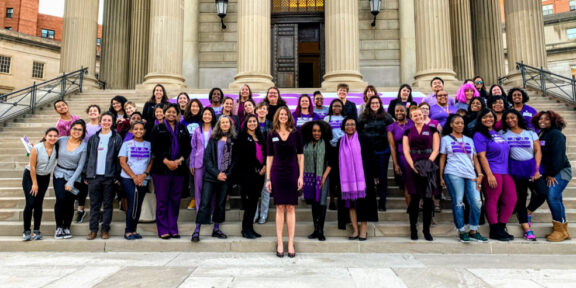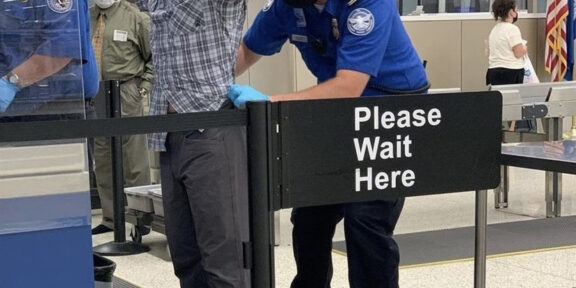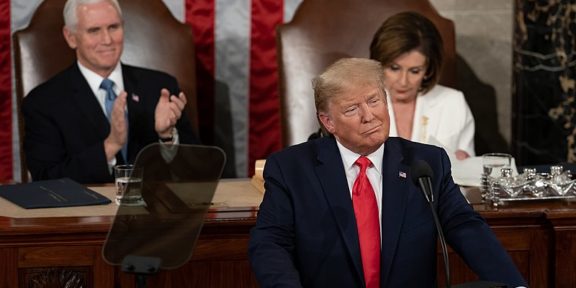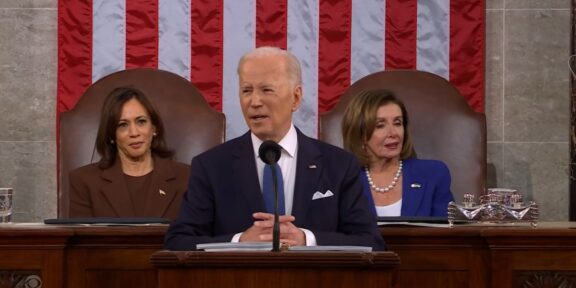The race for the White House has finished its course. With more than 300 electoral votes, Barack Obama will be the first African-American president of the United States.
In 2007, a confident Obama told attendees at Howard University’s Opening Convocation that when he’s president he would change that nation. Now a reality, Obama has a lot of work ahead of him.
In his 15-minute victory speech, Obama told supporters that there are “challenges that tomorrow will bring.” Obama spoke not of the joy of the moment, but delivered a speech of the reality to come.
With wife Michelle Obama and children at his side, Obama vowed to “be honest” in communicating challenges as he spoke to supporters at Grant Park in Chicago.
“There will be setbacks and false starts. There are many who won’t agree with every decision or policy I make as president,” Obama said. “But I will always be honest with you about the challenges we face. I will listen to you, especially when we disagree. And, above all, I will ask you to join in the work of remaking this nation.”
During his 21-month campaign, the former Illinois senator rallied around the need for change. More than 52.7 million popular votes symbolize that many voters had a similar desire for a shift in the nation’s politics.
His GOP opponents’ claims of Obama’s lack of experience and “suspicious” ties couldn’t thwart Obama’s popularity with voters. By 9 p.m. unofficial results from state board of elections showed McCain lagging by nearly 100 electoral votes.
In the end, McCain’s traditional campaign tactics were no match for Obama’s technology-driven campaign and abundant donations. Obama said the campaign manager, David Plouffe, was the “unsung hero … who built the best — the best political campaign … in the history of the United States of America.”
Early Returns Favor Obama
Obama dominated the northeastern states, winning West Virginia to Maine. But for key swing states like Virginia and Florida, the results teetered between blue and red until Obama took a clear two-point percentage lead in both states at 10 p.m.
Even as Obama inched closer to the presidency, McCain didn’t concede. But West Coast polling results prompted McCain to call Obama and congratulate him. The outcome was clear — even the remaining battleground states wouldn’t boost McCain’s electoral votes.
“The American people have spoken,” McCain said to his supporters in Phoenix. “And they have spoken clearly.”
Obama pleaded to McCain voters to unite in a bipartisan approach to heal the nation. “I may not have won your vote tonight, but I hear your voices,” he said. “I need your help. And I will be your president, too.”
McCain agreed: “These are difficult times for our country. And I pledge to him tonight to do all in my power to help him lead us through the many challenges we face.”
Americans Vote for Change
The road to change is far from over. Once inaugurated on Jan. 20, Obama will enter his first term as the 44th president of a nation overflowing with economic and financial turmoil.
“There are mothers and fathers who will lie awake after the children fall asleep and wonder how they’ll make the mortgage or pay their doctors’ bills or save enough for their child’s college education,” Obama said. “There’s new energy to harness, new jobs to be created, new schools to build, and threats to meet, alliances to repair.”
He continued: “The road ahead will be long. Our climb will be steep. We may not get there in one year or even in one term. But, America, I have never been more hopeful than I am tonight that we will get there.”
At the close of his campaign Obama returned to the slogan it all started with — “Yes We Can.”
“America, we have come so far. We have seen so much. But there is so much more to do,” he said. “This is our time … to reclaim the American dream and reaffirm that fundamental truth, that, out of many, we are one; that while we breathe, we hope. And where we are met with cynicism and doubts and those who tell us that we can’t, we will respond with that timeless creed that sums up the spirit of a people: Yes, we can.”





